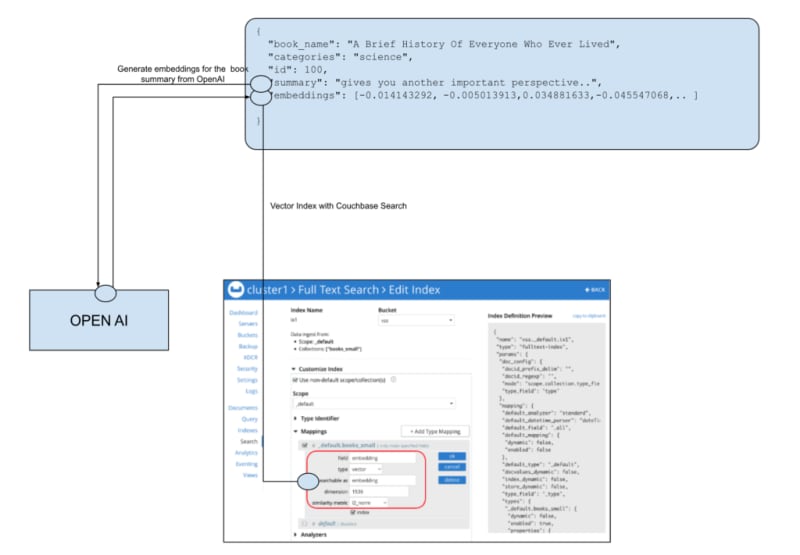We are thrilled to announce the launch of Couchbase 7.6, a groundbreaking update poised to redefine the landscape of database technology. This latest release is a testament to our commitment to enhancing database technology, with a significant leap in AI and machine learning integration with Vector Search, LangChain integration, empowering developers to build more intelligent and responsive applications.
Key to this version is the introduction of advanced Graph Traversal capabilities, opening new avenues for complex data relationships and network analysis. Enhancing developer efficiency, and seamlessly integrating RDBMS use cases with the agility and scalability of NoSQL.
Alongside these innovations, we’ve focused on elevating the user experience with enhanced monitoring of Query and Search performance, ensuring optimal efficiency and responsiveness in real-time data operations. This release also expands our BI capabilities with enriched BI Visualization tools, enabling deeper data insights and more powerful analytics.
Couchbase 7.6 is not just an update; it’s a transformation, delivering the tools and features that developers, SREs, and data scientists need to drive the future of database technology. Here are some of them.
AI integration
Vector Search
Couchbase introduces a new Vector Search capability with release 7.6, a significant enhancement to our search capabilities that aligns with the evolving technological demands of modern applications. As data complexity grows, the need for advanced search mechanisms becomes critical. Vector Search provides a solution, allowing developers to implement semantic search, enrich machine learning models, and support AI applications directly within their Couchbase environment.
With Vector search, the search goes beyond matching keywords or term frequency search. It allows the search to be based on the semantic meaning, the context in which it is used in the queries. In effect, it captures the intent of the queries, providing more relevant results even when exact keywords or terms are not present in the content.
For more information, please refer to the Couchbase documentation.
Vector Search with SQL++
You can use Couchbase’s NoSQL database capabilities to store any content, such as user profiles, historical interaction data, or content metadata. Then use a Machine Learning Model, like OpenAI, to generate the embeddings. Couchbase Vector Search can then index the embeddings and provide semantic and hybrid search.
You can also use SQL++ to perform the vector search directly, and combine the search predicates with the flexibility of Couchbase SQL++ for hybrid search:
SELECT b.book_name, b.categories, b.summaries
FROM `books` AS b
WHERE SEARCH(b, { /* calling Couchbase SEARCH() */
"query": {"match_none": {} },
"knn": [{ "field": "embedding",
"vector": [-0.014143292,-0.005013913,..],
"k": 3
}],
"fields": ["book_name", "summaries"],
"sort": ["-_score"],
"limit": 5
})
AND b.catogories='Non fiction';
Why we do not want to add a section on how to get the embeddings for the above query? The reason is that to do so in a UDF would require UDF/JS to support CURL, something that is not supported in Capella. Users can obtain the embeddings in their application layer.
To read about more features in this release, along with query and code samples, head over to the post Couchbase Server 7.6 Top New Features For Developers which appeared first on The Couchbase Blog.



Top comments (0)